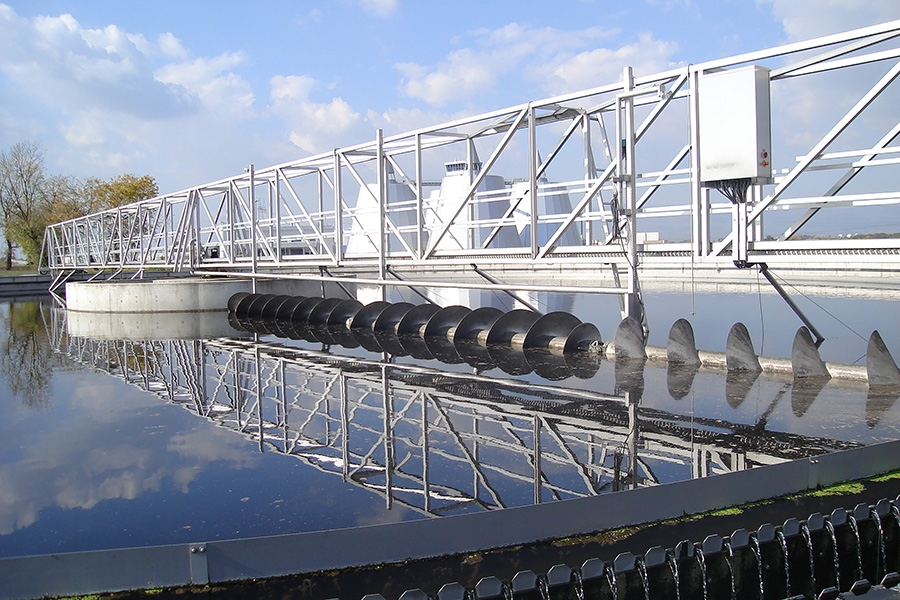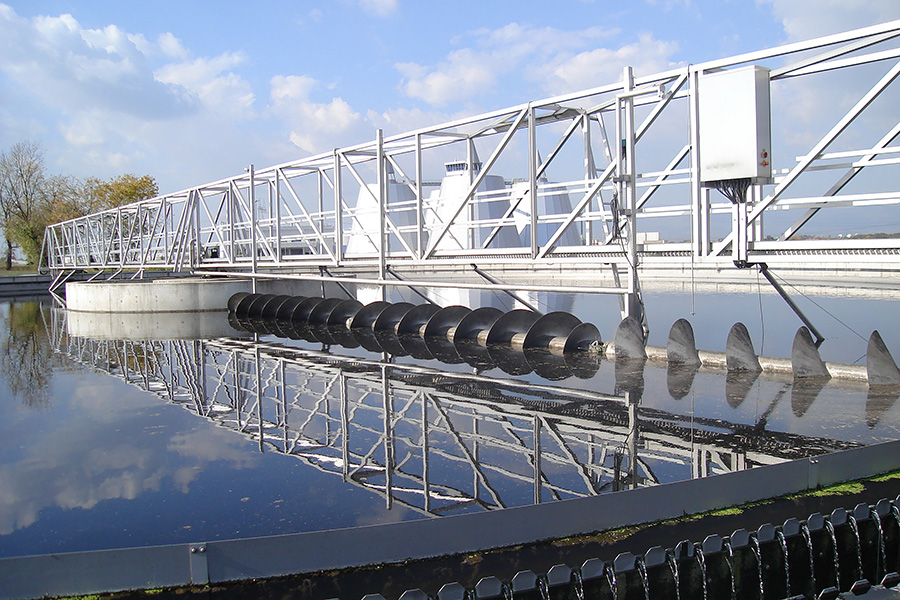
 |
| A wastewater settling tank removes sediments and oils as part of a wastewater recycling system. Credit: Hasan Zulic, Creative Commons Attribution 3.0 Unported |
Environmental Engineering Professor Ching-Hua Huang is devoting some of her research efforts to address one of the unknown effects of the coronavirus pandemic: how thoroughly the virus is treated in wastewater.
Huang’s research group is working on a National Science Foundation-funded project to investigate disinfection processes for wastewater treatment.
“We are very interested in knowing how well the wastewater treatment process can handle coronavirus,” Huang said.
Currently, chlorine is the most commonly used disinfectant in wastewater treatment. While it is effective, chlorine also creates harmful byproducts.
So Huang and her research group are studying the effectiveness of organic peroxides, a group of chemicals with fewer toxic byproducts that can also be good disinfectants. Huang is working with peracetic acid in particular.
Peracetic acid is already approved in the U.S. for wastewater and stormwater treatment and is also used as a disinfectant in sectors including food processing, the medical field, and the paper and pulp industry.
In published studies using bacteria, Huang and her students have found that combining the peracetic acid with UV light results in very effective disinfection. Currently, Huang’s research group is exploring how effective this disinfection strategy could be against viruses as well. Her group is investigating different bacteriophages, which are suitable surrogates for the coronavirus and other types of viruses.
The goal of her study is to advance the fundamental knowledge on organic peroxides and develop better treatment processes to mitigate water pollution to protect public health and environmental sustainability. So far, Huang says the disinfection studies are very promising for the coronavirus surrogate dispersed in wastewater.
“The results we learn from them will be very useful,” Huang said.
Related:
- Covid-19 Response: Monitoring Air Quality
- Covid-19 Response: Telecommuting Past, Present and Future
- Covid-19 Response: Wastewater-Based Epidemiology
